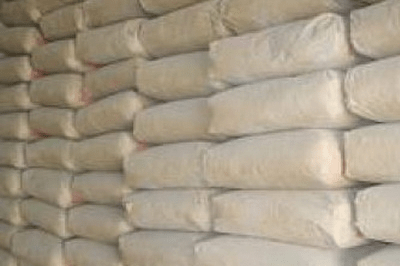The Member of Parliament for Dormaa West, Vincent Oppong Asamoah has said that the strength of the Cedi is the main cause of the the increase in cement prices.
To that end, he said even before the Legislative Instrument (LI) to regulate cement prices came to parliament all stakeholders should have been done to identify the real cause of the problem.
The Ranking member on the Committee for Works and Housing has said as important stakeholders in this, the committee was not involved.
“The committee that regulates trade, the committee for works and housing, and even finance, committees should have been tagged before this L.I came to parliament but we didn’t know anything about it,” he told Kemmini Amanor on the Ho Issues on T3 Sunday, July 7.
“If they did any consultation then it wasn’t enough,” he added.
Apart from him, the cement producers also said they were not consulted on the L.I.
But Trade Minister KT Hammond vehemently dismissed the claims by the cement producers that they were not consulted on the legislative Instrument (LI) to regulate cement prices.
He described the claim as a palpable falsehood.
Speaking in an interview with TV3’s Beatrice Adu, KT Hammond said that the Executive Secretary of the Cement Manufacturers Association of Ghana (CMAG) Rev. Dr. George Dawson-Ahmoah “actually gave me the draft, it is his handiwork.”
He added “It is palpable falsehood that I hadn’t consulted, he consistently has been at the forefront of all the attempts.”
Rev. Dr. George Dawson-Ahmoah, while indicating that they were not consulted also said that unfavorable economic conditions in Ghana are causing them to increase prices of cement.
“Why is the Minister avoiding or just running away from this discussion? Previously, our position has been that these prices of cement, the increase of prices of cement, it is not done in a vacuum. It is not done just because we wake up in the morning and do it.
“It is as a result of a negative trend in the economy, which is warranting such increases, and that is the issue. And like I said, what is happening now with cement prices is just because of the rapid and consistent depreciation of the cedi against the foreign currencies.
“We don’t know anything about it. And with my common knowledge in legislative instruments, don’t you involve stakeholders before it gets to Parliament? Don’t you involve stakeholders in the process?” he quizzed.
“No cement manufacturer is happy with increasing prices. We do that because of an unfavorable economic situation,” he said on the Key Points on TV3 on Saturday, June 29.
Rev. Dr. George Dawson-Ahmoah further said that the rapid depreciation of the local currency has been impacting their operations, forcing them to raise the prices of cement.
Clinker which is a major component of cement production, is imported hence the depreciation of the Cedi’s impact on their business, he said.
“It has a huge impact on the pricing of cement. There are other factors but currently this is a major concern now and that is what has motivated the Minister to rush to parliament to regulate prices. Why didn’t he do it last year?” He asked.
Rev. Dr. George Dawson-Ahmoah had told Trade Minister K T Hammond that the increasing prices of cement can be attributed to the fall of the Cedi against the Dollar.
Rev Dawson-Ahmoah said they do not need a Legislative Instrument to regulate cement prices.
But KT Hammond told journalists in Parliament on Wednesday, June 26 that he had engaged them.
“I asked them to ensure that something was done about it. In my absence, I was told that the minister wasn’t going to be able to do anything.
“They would not listen, they wouldn’t do it, and they would go the way they want. “Encouraging them to do it is a moral persuasion. If moral persuasion fails, there is a system in the country, there’s a constitution, and we are preyed by a rule of law. If we don’t accept the moral principle, at least some sort of economic principle, the good people of Ghana must benefit. I don’t think it is fair for the way they are pricing and the way, haphazardly each one of them decides and dictates how much a bag of cement should be sold for.
“This is quite apart from the quality that they are producing. Some of the companies are producing substandard products. We have had to deal with this matter,” he said.


































